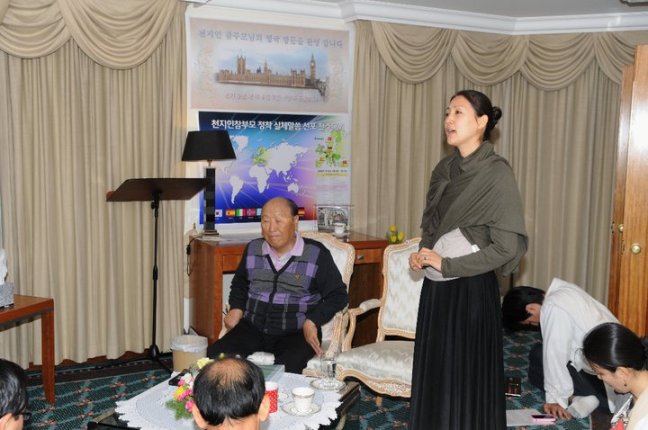![]()
The Words of the Burrowes Family
|
|
The Words of the Burrowes Family |

Dear Mr. [Young Tyang] Chang,
As you can see, I am finally in Guyana. Here is some general information about the country.
Where is Guyana? Guyana is situated on the North Atlantic coast of South America. Venezuela, Dutch Guiana and Brazil are respectively on the West, East and South of it. It is one of the most interesting geographical areas of the world. There are rain forests, mountains, coastal swamps, mud and sandy beaches. rugged rocky sea coasts, immense deep rivers, waterfalls, and rapids.
The unusual flora and fauna have encouraged naturalists from all over the world to visit Guyana. It is the land of beautiful flowers and in nearly everybody's front yard there is garden.
Guyana is the land of six peoples: Indians from India, Africans, Europeans, Amerindians (Red Indian type natives), Portuguese and Chinese in order of highest percentage. Because of the many races, there is a great mixture among the races so some rare types can be found.
How did it all begin? Columbus sailed along the coast of the Guianas around 1498 but did not land. The first people landed there around 1530 but did not remain. It was the El Dorado myth that made people become interested in the Guianas, because the mythical city of gold, whose king bathed in gold dust was supposed to be found there. In 1958 the Dutch landed and lived along the coastline but made no effort of establishing a settlement but in 1621 the Dutch West India Company was formed so they were given the authority to establish colonies and to carry slaves to the New World. The first colony was settled about 40 miles up the Essequibo river and a fort called Kijh-over-all (ruins still exist) was built. In 1660 the colony was attacked by the British and nearly over-run. During the 1700's and the early 1800's the Dutch drained the marshy land and dug canals and ditches, then Sugar-cane was planted, all dope with slave-labor. In 1781 war between Holland and England gave the English control of the colony but within a few months the French drove out the English and established a town where the present capital, Georgetown, now stands. In 1792 with the expiration of the Dutch West India charter, the Dutch government assumed control but in 1796 the British took the colony for the second time. In 1802 because of a treaty between the Dutch and the English, the Dutch were again the owners, however in 1803 the Dutch and English were fighting again and the British admiral Hood, tool: possession of the colony, this time permanently. There are still towns with Dutch names, New Amsterdam, vreed-en-hoop etc.
How did the six races come about? In 1820, the Reverend John Smith from the London Missionary Society, much against the wishes of the colonists, began teaching the negro slaves the Holy Scriptures along with rea ling and writing. The uprisings then began and by 1834 the slaves were freed. But the plantations had to be kept up so indentured slaves were brought in and the East Indians, Portuguese and Chinese came. Today Guyana is the melting pot of these races including the Europeans and Amerindians. These races lived in relative harmony until communist directed individuals, so as to gain power in the land set the two largest race blocks, the East Indians and the negroes against each other. An account of this political maneuver will follow later. This was around 1953. Then there were two small, so-to-speak, civil wars in 1962 and 1964. Guyana was no longer a colony from 1966 thus the former name British Guiana, was replaced by Guyana, this means "the land of many waters" in Amerindian.
The chief products of Guyana are sugar and its byproducts, rice, gold, bauxite and other mining divisions, diamonds, lumbering, fruit production.
Guyana has the highest literacy rate in the Americas because of its compulsory education programs.
There are four main religions: Protestantism, Catholicism and Islamism, and the national holidays include the chief holidays of these religions.
Bringing the divine Principles to the Guyanese will certainly be an enriching experience because of their religious and cultural background. People abroad have found them to be the most intelligent of the area. Many people are spiritually open. So with their spirituality and intelligence Divine Principles will be quite stimulating for them.
More news about Guyana soon.
Yours in Their Name,
Barbara Burrowes